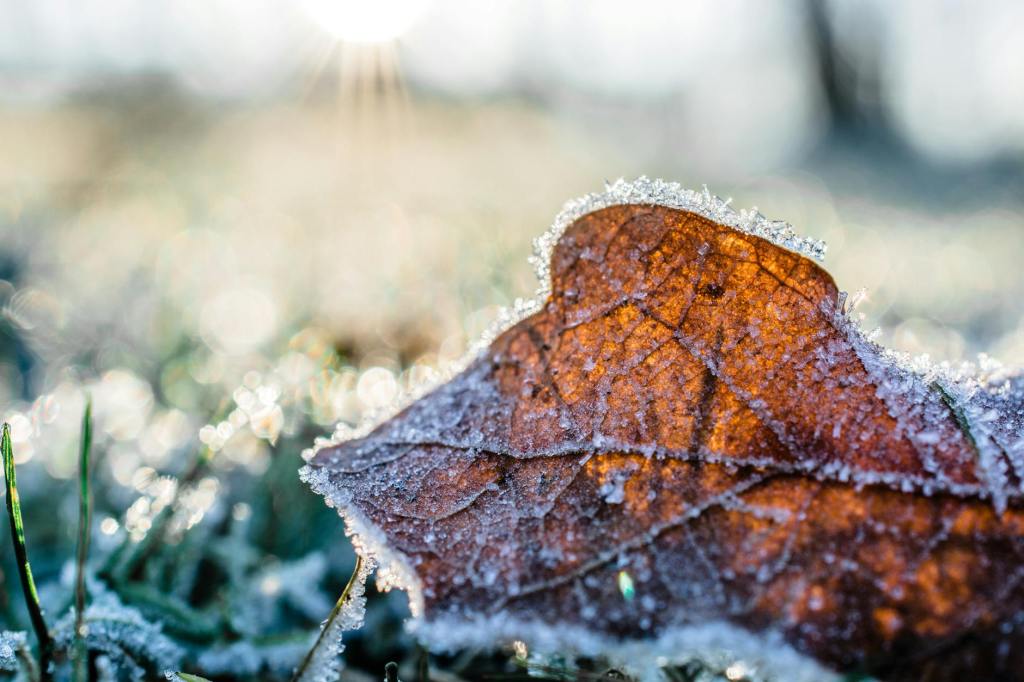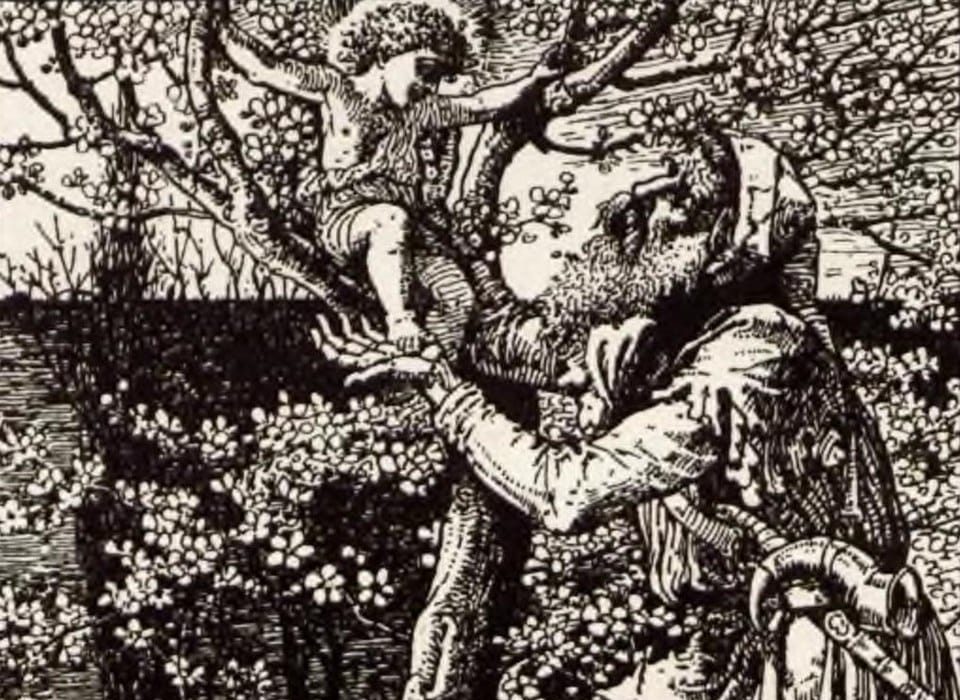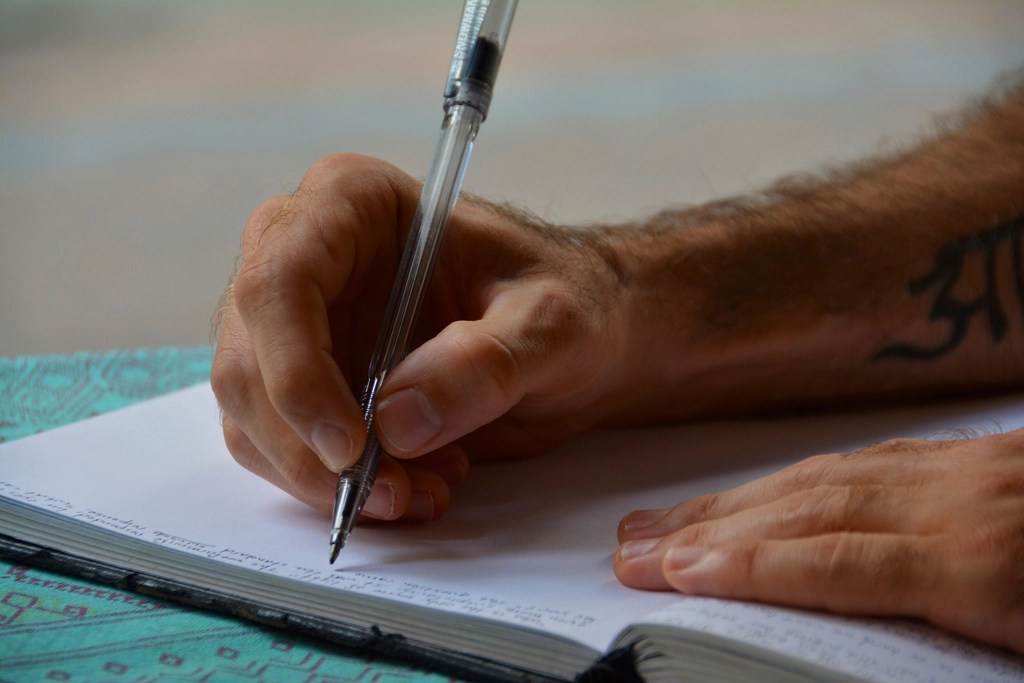- Robin Hood by Howard Pyle: Chapters 1-5
- Robin Hood by Howard Pyle: Chapters 6-10
- Robin Hood by Howard Pyle: Chapters 11-15
In this post, we analyze Robin Hood by Howard Pyle chapters 16-21. We have only a few chapters left of the book, so rather than do two chapters next week, we will just summarize Robin Hood by Howard Pyle chapters 16-21 in this post.
Chapter 16: Little John Turns Barefoot Friar
In this chapter, Little John disguises himself as a friar and visits the countryside. As stated in the text, both Little John and Friar Tuck enter a storehouse. There, they find a “robe of a Gray Friar” for the yeoman. The merry men laugh at Little John, but he still carries on in his mission.
In his travels, Little John meets a variety of characters. Through these interactions, he shows his worth as both an honorable and charitable man. He meets a group of women and helps them carry their eggs. He also meets some selfish friars and embarrasses them, Eventually, he meets the Sheriff of Nottingham’s men who are moving treasure from one place to another. Using his guile and disguise, he gains their trust and travels with them. Eventually, he overpowers them and takes the money back to Sherwood Forest.
Chapter 17: Robin Hood Turns Beggar
Meanwhile, Robin Hood disguises himself as a beggar after a confrontation about hidden money. So, after trading clothes, Robin Hood continues on his way. He then meets four beggars who are blind, deaf, and mute. Suspecting Robin is somebody he is not, they attack him but Robin defends himself and escapes with their money. Afterward, Robin tricks a corn dealer into giving him his money by using his disguise as a beggar for support against Robin Hood.
“Then merry Robin laughed again, and quoth he, ‘Men hereabouts call me Robin Hood; so, sweet friend, thou hadst best do my bidding and give me thy shoes, wherefore hasten, I prythee, or else thou wilt not get to fair Newark Town till after dark.”
Chapter 18: Robin Hood Shoots Before Queen Eleanor
Richard Partington, a page from Queen Eleanor, invites Robin and his merry men to an archery contest. At the contest, they will shoot in front of Queen Eleanor, with no harm coming to them for their participation. Robin Hood, disguised so as to not rouse King Richard, uses his exceptional prowess to win the contest. King Richard pardons Robin for his victory. .
However, the king discovers that Robin Hood was actually the person in disguise. Therefore, he sends men to find he and his merry men for capture. Partington warns Robin, so they leave the inn and go their separate ways. Robin then meets a cobbler and trades clothes with him. This leads to the arrest of the cobbler. Afterward, Robin stays at an inn and meets a friar and trades clothes with him, only to have the friar arrested.
After meeting Sir Richard of Lea on the road, the knight gives him some good information on returning to London to beg for mercy in front of the queen. This plan works and the queen sees that Robin is returned safely.
The text states: “Is it so?” quoth Robin, starting; for he knew right well that it was the Queen sent the message, and that she spake of the King’s wrath. “Now, I thank thee, good fellow, for thou hast done me greater service than thou knowest of this day.” Then he called his three yeomen together and told them privately that they had best be jogging, as it was like to be ill for them so nigh merry London Town. So, without tarrying longer, they made their way through the crowd until they had come out from the press. Then, without stopping, they left London Town and started away northward” (Pyle).
Chapter 19, 20, and 21
A bounty hunter, Guy of Gisbourne, is sent to capture Robin Hood. He is a ruthless and cunning adversary. Using their skills, they both duel each other to a standstill. Robin Hood eventually defeats Guy of Gisbourne and then uses the bounty hunter’s own appearance (his clothes and likeness) to infiltrate the Sheriff’s camp, where he frees the merry men and turns the tide of battle.
The Sheriff of Nottingham, enraged at being bested by Robin Hood time and time again, waits for the outlaw at an inn where he is to meet Guy of Gisbourne. Little John, meanwhile, meets a woman on the road whose sons were arrested and are to be hanged at the inn of the Sheriff of Nottingham. Little John uses an old man disguise and tracks down the Sheriff, asking him for money. The Sheriff agrees if only Little John will string up the arrested sons. Of course, Little John frees the men but is arrested himself, and Robin joins him just in time to misguide the Sheriff. Robin uses his own disguise to free Little John and the merry men chase of the Sheriff and his men.
In the final chapter, King Richard visits Sherwood Forest disguised as a monk. He sees their honor and justice firsthand, and so reveals his identity, offering Robin Hood a royal pardon for his crimes. King Richard invites them to join his royal service and acknowledges them for their noble actions and positive impact.
As the author writes: “The next day the King took leave of Nottingham Town; so Robin Hood and Little John and Will Scarlet and Allan a Dale shook hands with all the rest of the band, kissing the cheeks of each man, and swearing that they would often come to Sherwood and see them. Then each mounted his horse and rode away in the train of the King” (Pyle).
Epilogue
Robin returns to Sherwood after the death of King Richard, and blows his horn, which attracts Little John and his men, Will Scarlet, Allan A Dale, etc. The new king, King John, sends the Sheriff of Nottingham and Sir William Dale to bring Robin back to his duty. The merry men kill the Sheriff and send Sir William packing.
Of the battle, the text says, “…so thus it came about, at last, that Robin Hood and his yeomen met Sir William and the Sheriff and their men in the forest, and a bloody fight followed. The first man slain in that fight was the Sheriff of Nottingham, for he fell from his horse with an arrow in his brain ere half a score of shafts had been sped. Many a better man than the Sheriff kissed the sod that day, but at last, Sir William Dale being wounded and most of his men slain, he withdrew …” (Pyle).
After, Robin gets sick and dies after a bloodletting at a nunnery. He dies in Little John’s arms after firing his last arrow through a window and out toward Sherwood Forest. The merry men disband and go about their own lives.
The author writes, “As he finished speaking, he raised himself of a sudden and sat upright. His old strength seemed to come back to him, and, drawing the bowstring to his ear, he sped the arrow out of the open casement. As the shaft flew, his hand sank slowly with the bow till it lay across his knees, and his body likewise sank back again into Little John’s loving arms; but something had sped from that body, even as the winged arrow sped from the bow” (Pyle).
Robin’s arrow speeds through the sky and disappears on the horizon as Robin Hood dies.
Analysis
In Robin Hood by Howard Pyle chapters 16-21, the story has come to an end and all loose ties are now connected. Robin Hood dons many disguises, along with his men, to show the protean nature of their gorilla warfare and charades. They use guile and whimsy to best their opponents, from dressing as unrecognizable pathfinders to friars and cobblers. Additionally, they use their smarts to beat the Sheriff at his own game, by freeing their own men and killing his (Guy of Gisbourne, for instance). And, finally, in showing their martial prowess, they kill the Sheriff and defeat all of his men in fair combat.
Unfortunately, and maybe aptly, Robin dies of a fever in a nunnery, firing off his final arrow in a show that both times have changed and that the world was moving onward. The new king and sheriff were less harsh, and it seems as though the previous corruption was lessening; so much so that the merry men could finally disband.
Works Cited
Pyle, Howard. The Merry Adventures of Robin Hood. Scribner, 1883.





Leave a comment